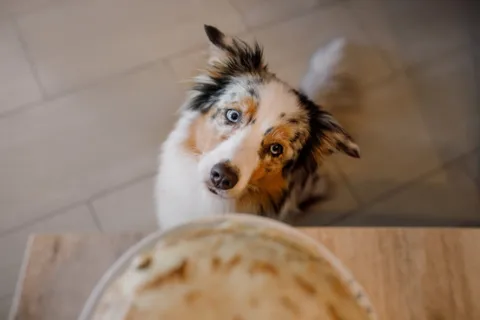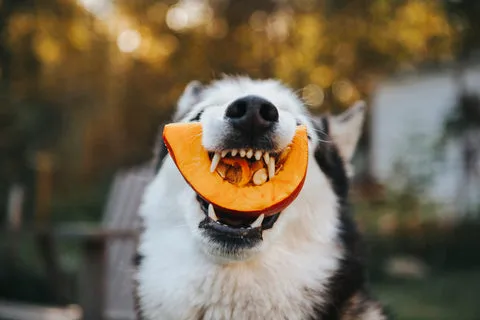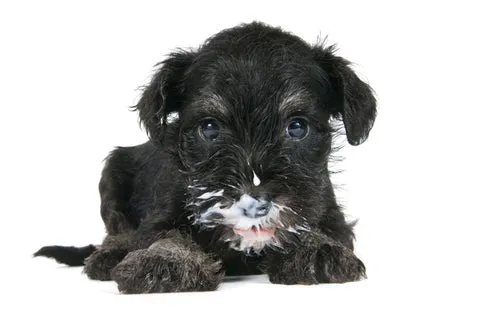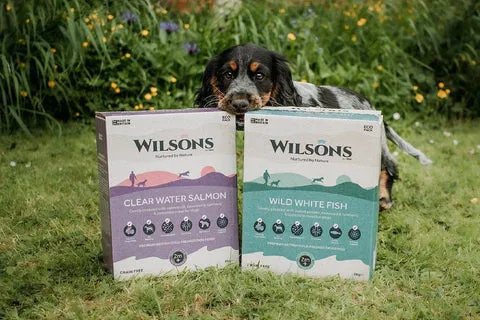When your beloved canine companion is feeling under the weather, their usual vibrant appetite might dwindle, making it challenging to know what to offer. Just like humans, dogs often lose interest in their regular food when battling an upset stomach or general malaise. Providing the right nutrition during these times is crucial for boosting their energy levels and supporting a swift recovery. This guide, brought to you by Dog Care Story, outlines the best foods for dogs with upset stomachs and offers advice on suitable options for those prone to allergies or sensitive digestion.
Understanding Your Sick Dog’s Dietary Needs
It’s natural to worry when your dog is sick and refuses to eat. A plain, bland diet composed of highly nutritious and easily digestible foods is generally the best approach. Having a few healthy options readily available can help you nurse your furry friend back to health when an unexpected illness strikes. However, if your dog’s condition persists or worsens, always consult your veterinarian for professional advice. Here are ten of the most nutritious and reliable options to feed a dog with an upset stomach.
1. Boiled White Meat
Plain white meat, such as chicken or turkey breast, is an ideal choice for a sick dog due to its ease of digestion and low-fat content. Offering lean protein, it can help soothe your dog’s sensitive stomach. Remember to always remove any skin or bones from the meat before feeding it to your dog to prevent choking hazards and make it gentler on their digestive system.
To prepare, thoroughly rinse the meat under cold water and remove any excess fat, skin, or bones. Place the meat in a pot, cover with water, bring to a boil, then reduce the heat and simmer for 15-20 minutes until cooked through. Drain the water, cut the meat into small, bite-sized pieces for easier digestion, and allow it to cool before serving, either alone or alongside plain white rice or cooked vegetables. For more insights on suitable vegetables, consider exploring what human vegetables can dogs eat.
2. White Rice
Both white and brown rice are common ingredients in dog foods, making them a trusted option when your dog is feeling unwell. While brown rice offers more nutrients, the blandness of white rice makes it a safer choice for a sick dog as it is particularly easy to digest.
 A white Collie looking up intently at a bowl filled with white rice, indicating anticipation for food.
A white Collie looking up intently at a bowl filled with white rice, indicating anticipation for food.
If your dog is experiencing diarrhea, white rice can also help bind their stools, aiding their digestive system in returning to normal. To prepare, rinse the rice under cold water, then add it to a large pan with twice the amount of water (e.g., 2 cups water to 1 cup rice) and a generous pinch of salt. Bring to a boil, then reduce to a simmer, cover, and cook on low heat for approximately 18 minutes, or until all the water is absorbed. Let it rest and cool, then fluff with a fork before serving.
3. Sweet Potatoes
Plain, cooked sweet potatoes are a fantastic choice for soothing your dog’s stomach and intestines. They are rich in vitamins and fiber, incredibly gentle on the digestive system, and provide essential nutrients like calcium, iron, and magnesium to support your dog’s health.
Never feed your dog raw sweet potatoes, as they are much harder to digest and could exacerbate stomach upset. Instead, peel the skins, chop the potatoes into chunks, and boil them in water until soft. Drain and mash them for your dog, serving once they have cooled down.
4. Pumpkin
Similar to sweet potatoes, pumpkin is highly effective in easing an upset stomach and helping a sick dog feel better. It’s packed with vitamins that boost your dog’s immune system and is rich in fiber, which can help regulate digestion.
 A cheerful Husky dog with a slice of pumpkin perfectly placed to resemble a smiling face.
A cheerful Husky dog with a slice of pumpkin perfectly placed to resemble a smiling face.
You can give your dog up to four tablespoons of plain canned pumpkin (ensure no added sugar or seasonings) mixed with their regular meal or alongside boiled chicken and rice to support their recovery. Avoid any pumpkin products with added sugar or spices, especially pumpkin pie seasoning, as these ingredients can further irritate your dog’s stomach.
5. Homemade Bone Broth
Bone broth is an excellent option for sick dogs, providing essential nutrients and minerals like sodium and potassium, while also promoting hydration. It’s low in carbohydrates and gentle on the stomach, making it easy to digest for dogs with an upset tummy. When preparing, avoid using garlic or excessive salt, as these can upset your dog’s stomach further.
To prepare homemade bone broth, add beef or pork marrow bones, along with chicken or turkey bones, to a large cooking pot. Cover them with a few inches of water and cook on low heat for 20-24 hours. Once finished, strain the liquid to remove all bones before serving.
6. Baby Food
For puppies struggling with an upset stomach, stage 2 meat-based baby foods such as chicken, lamb, or turkey can be an effective feeding choice. If you opt for baby food, carefully check the ingredients list to ensure there are no additives toxic to dogs, such as garlic or onion powder.
 Multiple Doodle puppies gathered around a large plate, eagerly eating baby food.
Multiple Doodle puppies gathered around a large plate, eagerly eating baby food.
Baby food is easy for puppies to chew and digest, and it can help alleviate stomach upset and diarrhea. If you are ever uncertain about specific ingredients in any baby food product, always consult your veterinarian for guidance.
7. Fish
Fish is a fantastic source of healthy fats and vital vitamins, which can significantly benefit your dog’s health and immune system when they are recovering from stomach issues. The strong aroma of fish can also be highly enticing, encouraging your dog to eat after they’ve lost their appetite.
The best way to prepare fish for your dog is by poaching it. Similar to boiling chicken, add the fish to a pan of water, bring it to a boil, then reduce the heat and simmer for 10-15 minutes until fully cooked. Carefully remove all bones and cut the fish into small pieces before feeding it to your dog.
8. Oatmeal
Plain, cooked oatmeal, a type of porridge made from rolled oats, can effectively soothe your dog’s upset stomach. High in fiber, it aids in alleviating constipation and contains antioxidants that are beneficial for reducing stomach inflammation.
While oatmeal is a healthy addition, moderation is key. Too much fiber can sometimes exacerbate stomach upset, so offer it sparingly. For guidance on other suitable human foods, you might find what are the best foods for dogs to eat helpful.
9. Yogurt
Plain, unsweetened yogurt, brimming with probiotics, is an excellent food for a dog experiencing an upset stomach. It aids digestion and supports gut health. If your dog is constipated, plain yogurt can help regulate their digestive system.
 A playful puppy with a dollop of plain yogurt on its chin, looking adorable.
A playful puppy with a dollop of plain yogurt on its chin, looking adorable.
Plain, natural yogurt is readily available at most local stores or supermarkets, making it an easy option to acquire if your dog suddenly falls ill. It can even be frozen and served as a cool, soothing treat on a warm day.
10. Eggs
Provided your dog is not vomiting, eggs are an ideal food choice because they are gentle on the stomach and provide a good source of protein. Eggs can also offer a much-needed energy boost if your dog feels lethargic after an illness.
Scrambled without butter or oil, or simply boiled, are the best ways to prepare eggs for your dog to ensure they are gentle on their stomach. However, if your dog is actively vomiting, it’s best to avoid eggs completely.
What to Feed a Dog with Allergies or Chronic Sensitivities
If your dog frequently suffers from an upset stomach or regular bouts of illness, it might be beneficial to consult your veterinarian to investigate potential food-related or breed-specific allergies. While conventional kibble can sometimes be problematic for sensitive dogs, many excellent alternatives cater to delicate digestive systems.
Cold-Pressed Dog Food
Cold-pressed dog food offers a notable alternative to traditional kibble, especially for dogs with food-related sensitivities. This form of dry food undergoes minimal processing at much lower temperatures than conventional kibble, which helps retain a greater nutritional value.
 A dog posing next to a bag of cold-pressed dog food, highlighting the product.
A dog posing next to a bag of cold-pressed dog food, highlighting the product.
Due to its unique production method, cold-pressed dog food breaks down easily, making it ideal for sensitive stomachs. Designed with overall health in mind, it aids digestion and can be fed alongside a raw diet as it breaks down at a similar rate. Options often include white fish, salmon, and chicken. Many brands also offer grain-free varieties, perfect for dogs with grain allergies, providing nutritionally dense food that won’t upset their tummies.
Insect Protein Dog Food
Complete and nutritionally balanced, insect protein dog food is often created using a similar cold-pressing method, ensuring a lower temperature process to preserve nutritional value and aid digestion.
Insects can provide more protein than traditional sources like chicken or beef, ensuring your dog receives all essential nutrients. Furthermore, insect proteins are frequently hypoallergenic and low in purines, making them an excellent food choice for dogs with sensitivities or meat-related allergies. This type of food can be fed alone or alongside raw food, as it breaks down similarly to meat-based options.
Raw Frozen Dog Food
If your dog is particular about its food or sensitive to its current kibble, a switch to raw food can be a beneficial dietary change. Raw food options are typically made from natural, minimally processed ingredients and are often grain-free, which can significantly aid digestion and improve overall health, including coat and skin condition.
Many raw food diets come in various formulations, such as an 80/10/10 mix (80% meat, 10% offal, 10% bone) or a 70/10/10/10 mix with added vitamins and minerals. These options allow you to tailor your dog’s diet precisely to their specific needs or allergies, sometimes by adding your own suitable vegetables and supplements. For more specific dietary needs, you might explore what human food can dogs eat to gain weight or what cooked vegetables are good for dogs.
Conclusion
Caring for a sick dog can be a worrying time, but providing the right diet is a fundamental step in their recovery journey. From plain boiled white meat and white rice to the soothing benefits of pumpkin and sweet potatoes, a bland, easily digestible diet can significantly aid an upset stomach. For dogs with chronic sensitivities, exploring options like cold-pressed, insect protein, or raw food can offer long-term digestive support. Always prioritize your dog’s comfort and consult your veterinarian for persistent symptoms or specific dietary concerns.
Remember, a healthy gut is key to a happy dog. For more valuable insights into canine nutrition and care, explore other articles on Dog Care Story! Before making significant dietary changes, especially for a sick dog or one with known allergies, always consult your vet. They can provide personalized advice based on your dog’s individual health needs.
